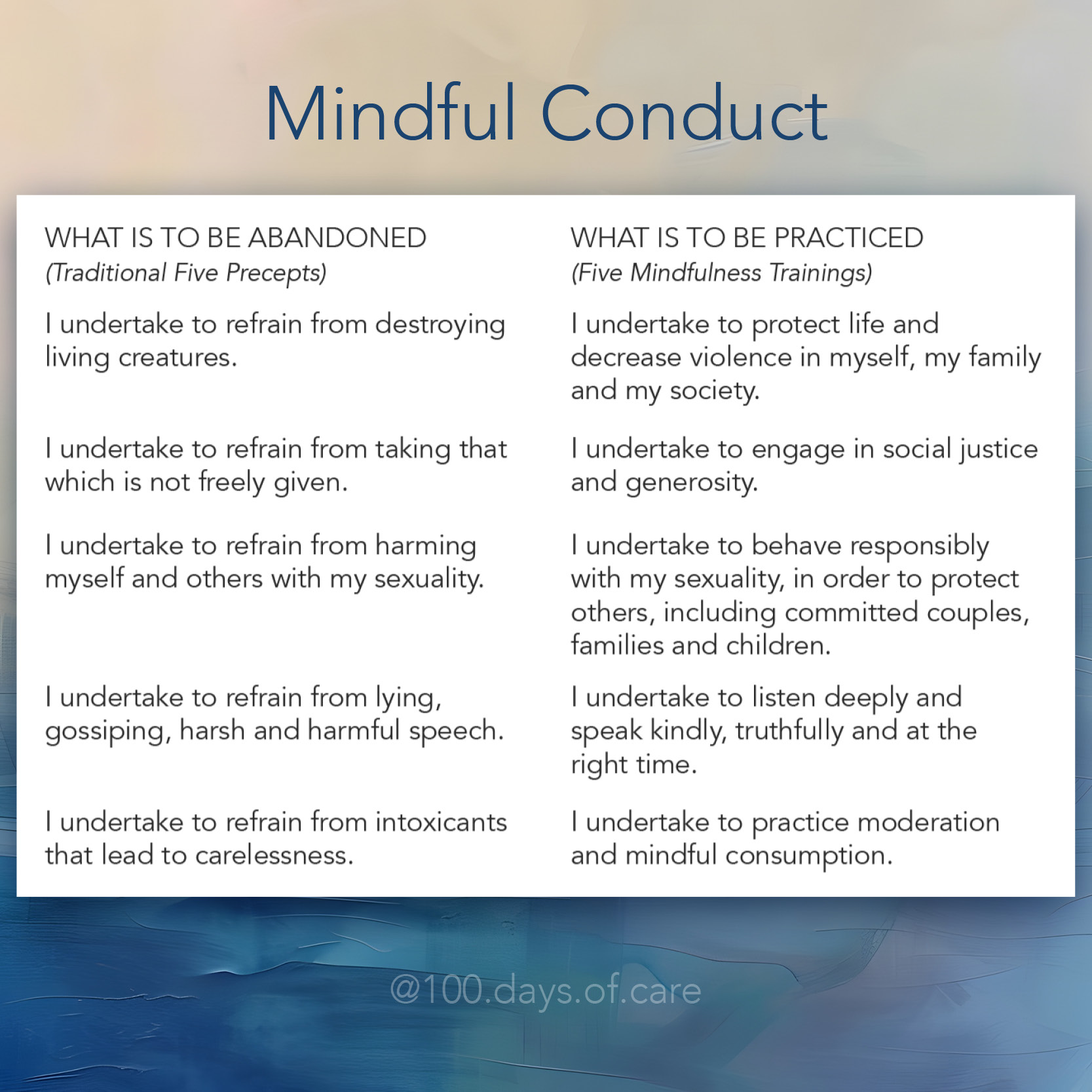We can think of ethical self-discipline as mindfulness of our behavior. It happens in two parts: first, we become aware of how we think, speak, and act. Then, we apply conscious effort to align these with what leads to greater peace and well-being—for ourselves and those around us.

It begins ‘on the cushion,’ where we observe the busy-ness of the mind and notice the quality of thoughts passing through awareness. It continues ‘off the cushion,’ as we witness this same stream of consciousness shaping our words and actions in real time.
The wish to practice self-discipline earnestly arises when we see how our thoughts inform our beliefs and drive our behavior. Very simply, when we act in ways that disturb our own mind—or the minds of others—we cannot experience peace. Gossip unsettles us. Thoughts of harm, whether directed inward or outward, create turbulence. Taking what isn’t freely given is felt as an upset in the heart-mind.
The Five Precepts (the ethical guidelines traditionally undertaken by lay Buddhists), whether framed as practices to avoid harm or as mindfulness trainings to cultivate goodness, serve as a mirror for our heart-mind. Through self-awareness and practice, we learn to respond to life with greater wisdom and integrity, experiencing the ‘bliss of blamelessness’—a deep ease that arises when our conduct aligns with our highest values.
Note: The Five Mindfulness Trainings were developed by Master Thich Nhat Hanh 🙏🏻
____
Sustain your 100 Days of Care Journey on Thursday evenings as we meet on Zoom to meditate and support each other in our practice.
This week (February 20, 2025) we will be contemplating and discussing the ‘far-reaching’ attitude of Ethical Self-Discipline (sila parami).
Everyone is welcome. Sessions are offered freely, by donation.
